South Carolina's 2nd congressional district
The 2nd congressional district of South Carolina is a congressional district in central and southwestern South Carolina. The district spans from Columbia to the South Carolina side of the Augusta, Georgia metropolitan area.
| South Carolina's 2nd congressional district | |||
|---|---|---|---|
.tif.png) South Carolina's 2nd congressional district since January 3, 2013 | |||
| Representative |
| ||
| Population (2000) | 668,668 | ||
| Median income | $58,665[1] | ||
| Ethnicity |
| ||
| Cook PVI | R+12[2] | ||
From 1993 through 2012, it included all of Lexington, Jasper, Hampton, Allendale and Barnwell counties; most of Richland and Beaufort counties and parts of Aiken, Calhoun and Orangeburg counties.
It was made more compact in the 2010 round of redistricting, and now comprises all of Lexington, Aiken and Barnwell counties, most of Richland County, and part of Orangeburg County. Besides Columbia (60 percent of which is in the district), other major cities in the district include Aiken and North Augusta.
The district's current configuration dates from 1933, following South Carolina losing a seat in apportionment as a result of the 1930 Census showing that the state's population had declined. Before that time, much of its territory had been within the 6th district.
As a Columbia-based district from 1933 to the early 1990s, it was a fairly compact district in the central part of the state, which was largely coextensive with the Columbia metropolitan area. As a result of the 1990 census, the state legislature was required to draw a black-majority district. In a deal between Republicans and Democrats, the 6th district, previously located in the northeastern portion of the state, was redefined to incorporate most of the old 2nd's black residents. To make up for the loss in population, the 2nd was pushed as far west as the fringes of the Augusta suburbs and as far south as Beaufort/Hilton Head.
Since 1965 the 2nd district has been held by the Republican Party, made up of white conservatives in the late 20th-century realignment of political parties in the South. In the decades after the Civil War and before disenfranchisement in 1895 under the new state constitution, members of the Republican Party in South Carolina and the South were mostly African Americans, including many freedmen enfranchised due to Republican support for amendments for emancipation, citizenship and the franchise. After white Democrats regained control of state governments across the South, in the late 19th century, they passed new constitutions from 1890 to 1908 to disenfranchise blacks, excluding them totally from the political process. The Republican Party was crippled in the region and nearly comatose.
As a result of the Civil Rights Movement, Congress passed the Voting Rights Act of 1965, which provided for federal enforcement of blacks' constitutional rights. That year, the 2nd district's second-term Democratic congressman, Albert Watson, resigned, then ran as a Republican in the ensuing special election and won, becoming the first Republican to represent South Carolina in the House since Reconstruction.
Watson gave up the seat to run for governor in 1970. His successor, state senator Floyd Spence, held the seat for more than 30 years. He was chairman of the House Armed Services Committee from 1995 to 2001, and died a few months after being elected to a 16th term. He was succeeded in a special election by one of his former aides, state senator Joe Wilson.
Wilson has since been reelected seven times. In the most recent election, held on November 4, 2014, Wilson earned almost 62.5% of the vote against former Democrat Phil Black and Labor Party candidate Harold Geddings. The district is more than 69% white.
Election results from presidential races
| Year | Office | Result |
|---|---|---|
| 2000 | President | Bush 58 - 39% |
| 2004 | President | Bush 60 - 39% |
| 2008 | President | McCain 59.5 - 39.4% |
| 2012 | President | Romney 59.1 - 39.4% |
| 2016 | President | Trump 56.3 - 38.6% |
List of members representing the district
| Member | Party | Years | Cong ress |
Electoral history | District location |
|---|---|---|---|---|---|
 Aedanus Burke |
Anti-Administration | March 4, 1789 – March 3, 1791 |
1st | Elected in 1788. Retired. |
1789–1793: "Beaufort-Orangeburg district"  South Carolina congressional districts, 1789–1793
1st district, Charleston
2nd district, Beaufort-Orangeburg
3rd district, Georgetown-Cheraw
4th district, Camden
5th district, Ninety-Six
|
| Robert Barnwell | Pro-Administration | March 4, 1791 – March 3, 1793 |
2nd | Elected in 1790. [data unknown/missing] | |
| John Hunter | Anti-Administration | March 4, 1793 – March 3, 1795 |
3rd | Elected in 1793. Moved to the 5th district and lost re-election. |
1793–1797: "Beaufort-Orangeburg district" (Map unknown) |
 Wade Hampton |
Democratic-Republican | March 4, 1795 – March 3, 1797 |
4th | Elected January 19–20, 1795 to finish the term of member-elect Robert Barnwell, who had declined to serve. Retired. | |
| John Rutledge Jr. | Federalist | March 4, 1797 – March 3, 1803 |
5th 6th 7th |
Elected in 1796. Re-elected in 1798. Re-elected in 1800. Lost re-election. |
1797–1803: "Beaufort district" 1796 election results by district |
| William Butler | Democratic-Republican | March 4, 1803 – March 3, 1813 |
8th 9th 10th 11th 12th |
Redistricted from the 5th district and re-elected in 1803. Re-elected in 1804. Re-elected in 1806. Re-elected in 1808. Re-elected in 1810. [data unknown/missing] |
1803–1813: "Beaufort and Edgefield district" |
.jpg) William Lowndes |
Democratic-Republican | March 4, 1813 – May 8, 1822 |
13th 14th 15th 16th 17th |
Redistricted from the 4th district and re-elected in 1812. Re-elected in 1814. Re-elected in 1816. Re-elected in 1818. Re-elected in 1820. Resigned. |
1813–1833: "Beaufort district" |
| Vacant | May 8, 1822 – December 13, 1822 |
17th | |||
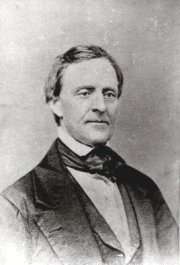 James Hamilton Jr. |
Democratic-Republican | December 13, 1822 – March 3, 1823 |
17th 18th 19th 20th |
Elected to finish Lowndes's term. Re-elected in 1823. Re-elected in 1824. Re-elected in 1826. Retired. | |
| Jacksonian Democratic-Republican | March 4, 1823 – March 3, 1825 | ||||
| Jackson | March 4, 1825 – March 3, 1829 | ||||
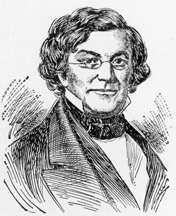 Robert W. Barnwell |
Jackson | March 4, 1829 – March 3, 1831 |
21st 22nd |
Elected in 1828. [data unknown/missing] | |
| Nullifier | March 4, 1831 – March 3, 1833 | ||||
 William J. Grayson |
Nullifier | March 4, 1833 – March 3, 1837 |
23rd 24th |
[data unknown/missing] | 1833–1843: [data unknown/missing] |
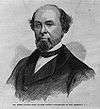 Robert Rhett |
Democratic | March 4, 1837 – March 3, 1843 |
25th 26th 27th |
[data unknown/missing] Redistricted to the 7th district. | |
| Richard F. Simpson | Democratic | March 4, 1843 – March 3, 1849 |
28th 29th 30th |
[data unknown/missing] | 1843–1853: [data unknown/missing] |
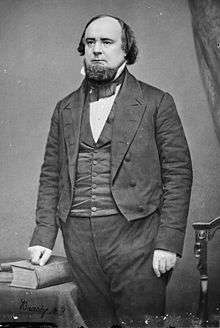 James L. Orr |
Democratic | March 4, 1849 – March 3, 1853 |
31st 32nd |
[data unknown/missing] Redistricted to the 5th district. | |
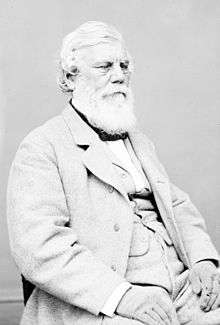 William Aiken Jr. |
Democratic | March 4, 1853 – March 3, 1857 |
33rd 34th |
Redistricted from the 6th district. [data unknown/missing] | |
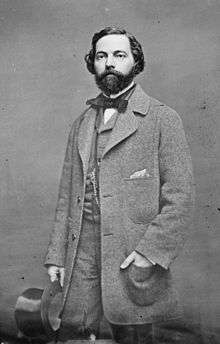 William P. Miles |
Democratic | March 4, 1857 – December 24, 1860 |
35th 36th |
[data unknown/missing] Retired. | |
| Vacant | December 24, 1860 – July 20, 1868 |
36th 37th 38th 39th 40th |
Civil War and Reconstruction | ||
 Christopher C. Bowen |
Republican | July 20, 1868 – March 3, 1871 |
40th 41st |
[data unknown/missing] | |
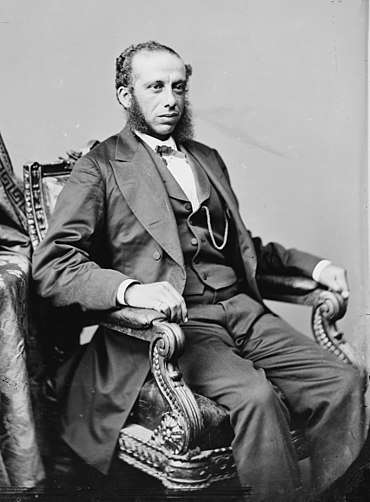 Robert C. De Large |
Republican | March 4, 1871 – January 24, 1873 |
42nd | Elected in 1870. Seat declared vacant. | |
| Vacant | January 24, 1873 – March 3, 1875 | ||||
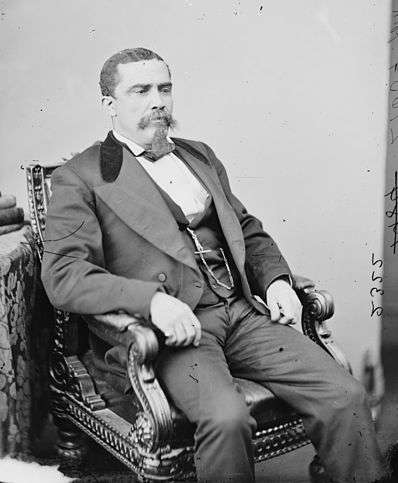 Alonzo J. Ransier |
Republican | March 4, 1873 – March 3, 1875 |
43rd | [data unknown/missing] | 1873–1883: [data unknown/missing] |
 Edmund W.M. Mackey |
Independent Republican | March 4, 1875 – July 19, 1876 |
44th | Elected in 1874. Seat declared vacant. | |
| Vacant | July 19, 1876 – November 7, 1876 | ||||
| Charles W. Buttz | Republican | November 7, 1876 – March 3, 1877 |
Elected to finish Mackey's term. Retired. | ||
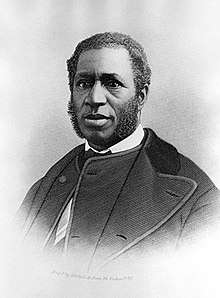 Richard H. Cain |
Republican | March 4, 1877 – March 3, 1879 |
45th | Elected in 1876. [data unknown/missing] | |
.jpg) Michael P. O'Connor |
Democratic | March 4, 1879 – March 3, 1881 |
46th | contested election at end of term | |
 Samuel Dibble |
Democratic | June 9, 1881 – May 31, 1882 |
47th | lost contested election | |
 Edmund W.M. Mackey |
Republican | May 31, 1882 – March 3, 1883 |
47th | [data unknown/missing] Redistricted to the 7th district. | |
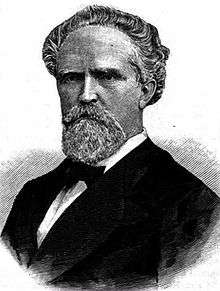 George D. Tillman |
Democratic | March 4, 1883 – March 3, 1893 |
48th 49th 50th 51st 52nd |
[data unknown/missing] | 1883–1893: [data unknown/missing] |
 W. Jasper Talbert |
Democratic | March 4, 1893 – March 3, 1903 |
53rd 54th 55th 56th 57th |
[data unknown/missing] Retired to run for Governor of South Carolina. |
1893–1903: [data unknown/missing] |
 George W. Croft |
Democratic | March 4, 1903 – March 10, 1904 |
58th | Elected in 1902. Died. |
1903–1913: [data unknown/missing] |
| Vacant | March 10, 1904 – May 17, 1904 | ||||
| Theodore G. Croft | Democratic | May 17, 1904 – March 3, 1905 |
Elected to finish Croft's term. [data unknown/missing] | ||
.png) James O'H. Patterson |
Democratic | March 4, 1905 – March 3, 1911 |
59th 60th 61st |
[data unknown/missing] | |
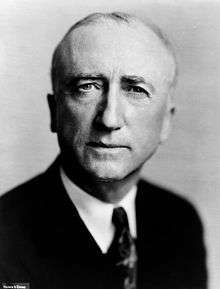 James F. Byrnes |
Democratic | March 4, 1911 – March 3, 1925 |
62nd 63rd 64th 65th 66th 67th 68th |
[data unknown/missing] | |
| 1913–1933: Aiken, Bamberg, Barnwell, Beaufort, Edgefield, Hampton, Jasper, and Saluda Counties[3] | |||||
 Butler B. Hare |
Democratic | March 4, 1925 – March 3, 1933 |
69th 70th 71st 72nd |
[data unknown/missing] | |
 Hampton Fulmer |
Democratic | March 4, 1933 – October 19, 1944 |
73rd 74th 75th 76th 77th 78th |
Redistricted from the 7th district. Died. |
1933–1943: [data unknown/missing] |
| 1943–1953: [data unknown/missing] | |||||
| Vacant | October 19, 1944 – November 7, 1944 |
78th | |||
 Willa L. Fulmer |
Democratic | November 7, 1944 – January 3, 1945 |
Elected to finish her husband's term. [data unknown/missing] | ||
.jpg) John J. Riley |
Democratic | January 3, 1945 – January 3, 1949 |
79th 80th |
[data unknown/missing] | |
.jpg) Hugo S. Sims Jr. |
Democratic | January 3, 1949 – January 3, 1951 |
81st | [data unknown/missing] | |
.jpg) John J. Riley |
Democratic | January 3, 1951 – January 1, 1962 |
82nd 83rd 84th 85th 86th 87th |
[data unknown/missing] Died. | |
| 1953–1963: [data unknown/missing] | |||||
| Vacant | January 1, 1962 – April 10, 1962 |
87th | |||
 Corinne Boyd Riley |
Democratic | April 10, 1962 – January 3, 1963 |
Elected to finish her husband's term. [data unknown/missing] | ||
 Albert Watson |
Democratic | January 3, 1963 – February 1, 1965 |
88th 89th |
[data unknown/missing] Resigned. |
1963–1973: [data unknown/missing] |
| Vacant | February 1, 1965 – June 15, 1965 |
89th | |||
 Albert Watson |
Republican | June 15, 1965 – January 3, 1971 |
89th 90th 91st |
Re-elected to finish his term as a Republican. [data unknown/missing] | |
 Floyd Spence |
Republican | January 3, 1971 – August 16, 2001 |
92nd 93rd 94th 95th 96th 97th 98th 99th 100th 101st 102nd 103rd 104th 105th 106th 107th |
[data unknown/missing] Died. | |
| 1973–1983: [data unknown/missing] | |||||
| 1983–1993: [data unknown/missing] | |||||
| 1993–2003: [data unknown/missing] | |||||
| Vacant | August 16, 2001 – December 18, 2001 |
107th | |||
 Joe Wilson |
Republican | December 18, 2001 – present |
107th 108th 109th 110th 111th 112th 113th 114th 115th 116th |
Elected to finish Spence's term. Re-elected in 2002. Re-elected in 2004. Re-elected in 2006. Re-elected in 2008. Re-elected in 2010. Re-elected in 2012. Re-elected in 2014. Re-elected in 2016. Re-elected in 2018. | |
2003–2013:[4] | |||||
2013 – present:.tif.png) | |||||
| Member | Party | Years | Cong ress |
Electoral history | District location |
References
- https://www.census.gov/mycd/?st=45&cd=02
- "Partisan Voting Index – Districts of the 115th Congress" (PDF). The Cook Political Report. April 7, 2017. Retrieved April 7, 2017.
- "South Carolina". Official congressional directory. p. 104.
- "The national atlas". nationalatlas.gov. Archived from the original on February 22, 2014. Retrieved February 22, 2014.
- Martis, Kenneth C. (1989). The Historical Atlas of Political Parties in the United States Congress. New York: Macmillan Publishing Company.
- Martis, Kenneth C. (1982). The Historical Atlas of United States Congressional Districts. New York: Macmillan Publishing Company.
- Congressional Biographical Directory of the United States 1774–present
- Political Graveyard database of South Carolina congressmen